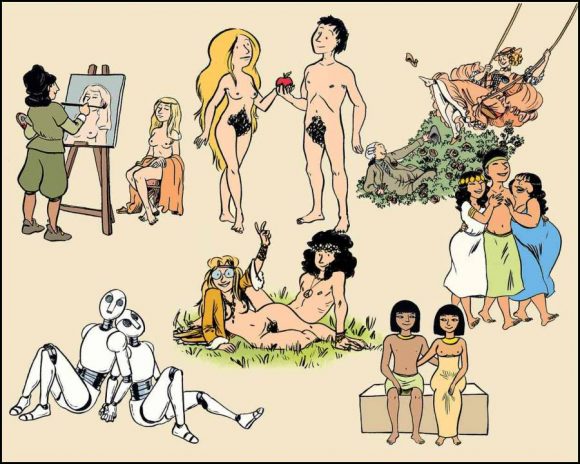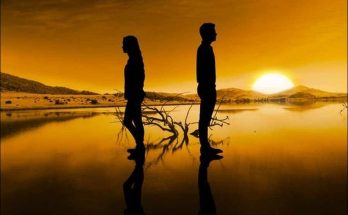The sexual life of our ancestors. Research by sociologists and anthropologists suggests that deprivation of sexual pleasure is perhaps the biggest reason behind physical violence.
There are very few things that make people as miserable as sexual hunger.
The reason for physical hunger is because of the shortage or lack of money, a person cannot feed himself.
What causes sexual hunger is not female or male stenosis or lack of money.
There are billions of women and men in the world.
But there are also millions, perhaps billions of people, in suppressed sexual desires, namely, sexual hunger or dissatisfaction.
People in this situation, the majority of humanity, are prone to resort to violence. They are unhappy, resentful, aggressive, addicted to alcohol or drugs. They are female beats and racers. And they are victims of a thousand kinds of psychosis.
The reason for the occurrence of life poisoners I mentioned is the sexual prohibitions; laws, rules, traditions, religion, family, environment and state pressure.
These constraints can vary from society to society, from country to country. Unchanging is the encompassing of sexuality everywhere except primitive tribes, with opposite prohibitions to human nature and tendencies.
But it was not always so.
Like many things that are a source of unhappiness today – such as selling time and freedom in return for salary – this started when man stopped hunting and gathering and switched to agriculture and animal husbandry.
Research by sociologists and anthropologists suggests that deprivation of sexual pleasure is perhaps the biggest reason behind physical violence.
Research in nearly 50 primitive tribes – that is, in small communities that lead their lives with hunting and gathering – revealed that which one is peaceful and which is aggressive is linked to one hundred percent sexuality.*
The tribes, where everyone freely experiences their sexuality regardless of gender and age, are absolutely peaceful.
The sex life of Pirahã, who lives in one of the most remote corners of the Amazon rain forest, is a good example of what this freedom is like.
I summarize from the book of the American Daniel Everett, who lived thirty years among the Pirahs.
If a woman and a man started living in the same hut, they are considered married. There is no wedding association or any other ritual.
If a married woman or man leaves the village with someone else and spends two or three days in the forest, he returns, and begins to live together, he is considered divorced from his ex-spouses. Although ex-spouses feel sorry for this, they calmly accept the situation.
Violence is not used.
Before marriage, girls and boys sleep with each other for their pleasure. The same applies to adults whose liberty is not married. Children are also free to investigate sexuality.
There is marriage in the Pirahã but there is no monogamy.
The whole village participates in dances performed mostly on full moon nights. There are no musical instruments. Hands are clapped, feet hit the ground, sings and dances. Whether he is married or single, he can sleep with whatever he wants.
Due to their sexual freedom, most of the people in the village slept with each other.
According to Everett, violence and aggression are rarely encountered in the Pirahã community, and when they are encountered, the reason why they are not tolerated by anyone is the closeness between people.
Our ancestors lived happily and free like the Pirahs, for tens of thousands of years.
Then came settled life, agriculture and animal husbandry, followed by monotheistic religions aimed at organizing that life. And sexual prohibitions and taboos that are contrary to the human nature they bring and the unhappiness they cause, violence between individuals and communities, dependencies and mental problems …
Will there be salvation from them? Or is violence and unhappiness the destiny of people forever?
Visits: 55



